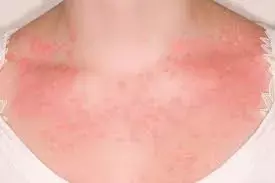- Home
- Medical news & Guidelines
- Anesthesiology
- Cardiology and CTVS
- Critical Care
- Dentistry
- Dermatology
- Diabetes and Endocrinology
- ENT
- Gastroenterology
- Medicine
- Nephrology
- Neurology
- Obstretics-Gynaecology
- Oncology
- Ophthalmology
- Orthopaedics
- Pediatrics-Neonatology
- Psychiatry
- Pulmonology
- Radiology
- Surgery
- Urology
- Laboratory Medicine
- Diet
- Nursing
- Paramedical
- Physiotherapy
- Health news
- Fact Check
- Bone Health Fact Check
- Brain Health Fact Check
- Cancer Related Fact Check
- Child Care Fact Check
- Dental and oral health fact check
- Diabetes and metabolic health fact check
- Diet and Nutrition Fact Check
- Eye and ENT Care Fact Check
- Fitness fact check
- Gut health fact check
- Heart health fact check
- Kidney health fact check
- Medical education fact check
- Men's health fact check
- Respiratory fact check
- Skin and hair care fact check
- Vaccine and Immunization fact check
- Women's health fact check
- AYUSH
- State News
- Andaman and Nicobar Islands
- Andhra Pradesh
- Arunachal Pradesh
- Assam
- Bihar
- Chandigarh
- Chattisgarh
- Dadra and Nagar Haveli
- Daman and Diu
- Delhi
- Goa
- Gujarat
- Haryana
- Himachal Pradesh
- Jammu & Kashmir
- Jharkhand
- Karnataka
- Kerala
- Ladakh
- Lakshadweep
- Madhya Pradesh
- Maharashtra
- Manipur
- Meghalaya
- Mizoram
- Nagaland
- Odisha
- Puducherry
- Punjab
- Rajasthan
- Sikkim
- Tamil Nadu
- Telangana
- Tripura
- Uttar Pradesh
- Uttrakhand
- West Bengal
- Medical Education
- Industry
Lirentelimab efficient for antihistamine-refractory chronic urticaria: Study

Lirentelimab is efficient for antihistamine-refractory chronic urticaria, according to a recent study published in the Journal of Allergy and Clinical Immunology.
Chronic urticaria (CU) is a debilitating mast cell-driven disease, often refractory to standard therapy (ie, antihistamines). Lirentelimab, an anti–sialic acid-binding immunoglobulin-like lectin 8 mAb, selectively inhibits mast cells and depletes eosinophils.
A group of researchers sought to determine the safety and efficacy of lirentelimab in patients with CU.
This phase 2a study enrolled patients with CU refractory to up to 4-fold H1-antihistamine doses. Patients received 6 monthly intravenous doses of lirentelimab (0.3, 1, and up to 3 mg/kg). The primary efficacy endpoint was a change in Urticaria Control Test score at week 22. Urticaria Activity Score weekly average (UAS7) was assessed in patients with chronic spontaneous urticaria (CSU), and Cholinergic UAS7 was used for patients with cholinergic urticaria (CholU).
Results:
A total of 45 patients were enrolled in 4 cohorts (n = 13 omalizumab-naive CSU, n = 11 omalizumab-refractory CSU, n = 11 CholU, n = 10 symptomatic dermographism). Urticaria Control Test scores increased with lirentelimab across cohorts, with mean changes at week 22 of 11.1 ± 4.1, 4.8 ± 7.0, 6.5 ± 6.2, and 3.4 ± 4.1 and complete response rates (Urticaria Control Test score ≥ 12) of 92%, 36%, 82%, and 40%, respectively. In omalizumab-naive and omalizumab-refractory patients with CSU, disease activity decreased at week 22 (mean UAS7 change, −73% and −47%, respectively), with UAS7 response rates (≥50% reduction) of 77% and 45%, respectively. In patients with symptomatic dermographism, 50% (5 of 10) and 40% (4 of 10) had a complete itch and hive resolution by FricTest, respectively, and 100% (7 of 7) evaluable patients with CholU had negative responses to Pulse-Controlled Ergometry exercise test. Most common adverse events included infusion-related reactions (43%; all mild/moderate and transient), nasopharyngitis (21%), and headache (19%). No treatment-related serious adverse events occurred.
Thus, Lirentelimab demonstrated activity across 3 forms of antihistamine-refractory CU.
Reference:
https://www.jacionline.org/article/S0091-6749%2821%2902682-8/fulltext
Dr. Shravani Dali has completed her BDS from Pravara institute of medical sciences, loni. Following which she extensively worked in the healthcare sector for 2+ years. She has been actively involved in writing blogs in field of health and wellness. Currently she is pursuing her Masters of public health-health administration from Tata institute of social sciences. She can be contacted at editorial@medicaldialogues.in.
Dr Kamal Kant Kohli-MBBS, DTCD- a chest specialist with more than 30 years of practice and a flair for writing clinical articles, Dr Kamal Kant Kohli joined Medical Dialogues as a Chief Editor of Medical News. Besides writing articles, as an editor, he proofreads and verifies all the medical content published on Medical Dialogues including those coming from journals, studies,medical conferences,guidelines etc. Email: drkohli@medicaldialogues.in. Contact no. 011-43720751


